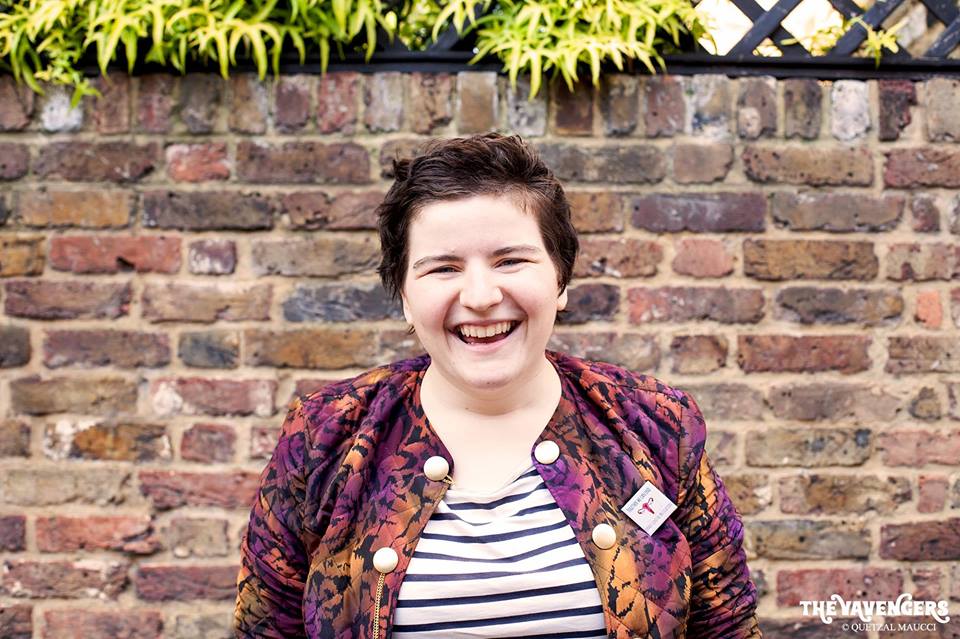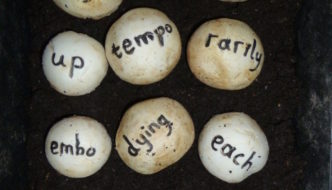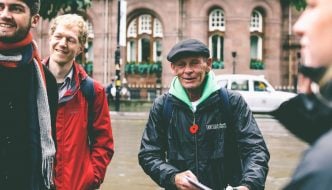
Megan Beech is a young poet whose debut collection, When I grow up I want to be Mary Beard, was received with critical acclaim and has proved itself hugely popular, perhaps most particularly amongst young feminists. I had the pleasure of chatting with Ms Beech about her highly anticipated second book You Sad Feminist to find out more about the collection itself, and the journey towards putting it together. The themes of feminism and mental health are key throughout, and are handled with sensitivity and a relevance to current events that is entirely unique to her style.
Jo Boon: How long has it taken you to put together You Sad Feminist?
Megan Beech: In short, a lot longer than I thought it would! It’s coming up to four years since my debut collection came out so it’s been a while. I started work on You Sad Feminist about two years ago, but living with a mental illness doesn’t always preclude finding yourself well enough to write. There was a lot of writer’s/life block going on when I set about working on the book. I really hate the stereotype of depression as this kind of magical gift to the tortured artist that makes them manically creative and productive. That may be true for some people, but it was only really when I started getting treatment that truly helped, and [that] I believed in, that my work on the book started to fall into place.
JB: What influenced the title?
MB: The title was influenced by my experiences of being a feminist but also having depression. I found these two things often felt in conflict with one another. How could I spend the day teaching feminist workshops with young women about empowerment then go home and be consumed with negative thoughts about my body and my self-worth? How could I change the world when I couldn’t get out of bed? The book is in many ways about trying to negotiate these challenges in my life. I was sent insults on Twitter like, “You sad feminist”, and much worse when I made a film with the BBC, and when I’ve performed on the radio or on my TEDx talk. It’s a kind of way of re-appropriating the insults that sexist people hurl at public women. Being a feminist is not bad, having depression does not make you a bad person.
JB: Does it follow on from When I grow up I want to be Mary Beard?
MB: I hope it’s a progression and growth in writing from When I grow up I want to be Mary Beard. I was 19 when I signed off on that book (and just on the cusp of a still-evolving major depressive episode). So, I think the first collection is more youthful and buoyant and quite frenetic in its themes. This collection is more tightly woven together as a body of work (I hope), around the theme of my experiences of depression — with the same feminist core stitched into its spine!
JB: Do you have a favourite poem or line in the collection?
MB: That’s a tough question. I’m most proud of the poems where I have been as honest as I can about living with depression and what it feels like.
JB: Huge question I realise, but I was wondering if you could tell me what the personal importance of poetry/spoken word is to you?
MB: I guess poetry has always been a great outlet for me. I’ve always struggled with social anxiety and, at first, it was just a way of expressing myself as a child. I was too shy to perform it in front of people, so spoken word came into my life a lot later, when I was about 17/18. What I love about spoken word is the lack of hierarchies. There’s little barrier between the audience and performer, [and] you don’t need a mainstream publishing contract to start doing it, to stand up on stage and say what you think. It’s also a great medium to make the personal political — it’s a space for protest, debate and personal exploration. It’s powerful!
JB: How would you sum up the collection in ten words or less?
MB: Depressed feminist girl finds pain, politics and hope whilst rhyming.
JB: What can we expect from you in the future? Any projects in the works?
MB: I’ve been toying with a few new projects — one nonfiction, and one for children. I’d definitely like to explore other genres of writing and to grow in those areas too. As evidenced by the length between my first two books, for someone who writes for a living it’s something I often find intimidating and difficult. I’m also doing a PhD on 19th Century performance so that takes up the lion’s share of my time, but I’m excited to perform shows in support of the new book and to work (in slow-burn fashion) on these new projects.
You Sad Feminist is available for pre-ordering now via Waterstones.
Filed under: Written & Spoken Word
Tagged with: depression, female poet, feminism, Megan Beech, mental health, poetry, poetry collection, spoken work, You Sad Feminist



Comments